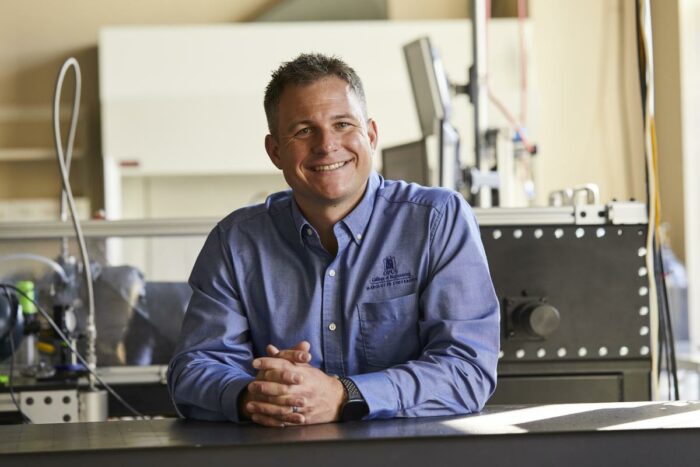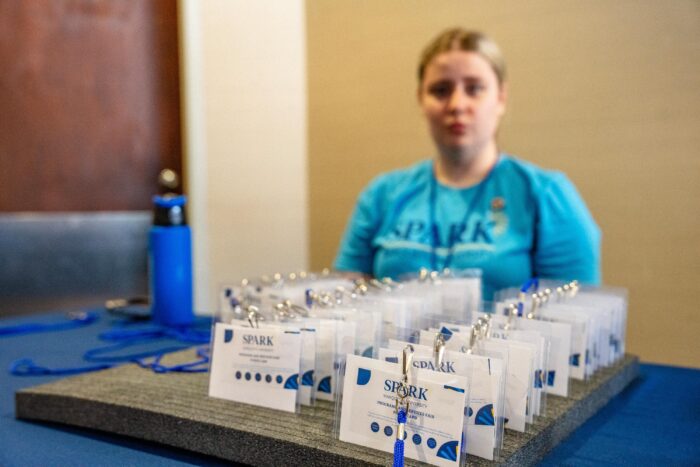 Dr. Adam Dempsey, assistant professor of mechanical engineering in the Opus College of Engineering, has been awarded a $2.5 million grant from the U.S. Department of Energy through the Office of Energy Efficiency and Renewable Energy to demonstrate a heavy-duty engine that can use flex-fuel (i.e., gasoline/ethanol blends) rather than diesel.
Dr. Adam Dempsey, assistant professor of mechanical engineering in the Opus College of Engineering, has been awarded a $2.5 million grant from the U.S. Department of Energy through the Office of Energy Efficiency and Renewable Energy to demonstrate a heavy-duty engine that can use flex-fuel (i.e., gasoline/ethanol blends) rather than diesel.
The project, “Development of a Flex‐Fuel Mixing Controlled Combustion System for Gasoline/Ethanol Blends Enabled by Prechamber Ignition,” will be funded over three years and is a collaboration with co-principal investigator, Dr. Casey Allen, associate professor of mechanical engineering at Marquette.
“We have a unique combination of expertise that will be applied on this project to evaluate the merits of this concept as an enabler for the efficient use of renewable fuels in future engines,” Dempsey said. “Ethanol is an extremely successful, domestic renewable fuel that is widely available as gasoline/ethanol blends. With this project, we will allow for the use of flex-fuel while maintaining many of the qualities of a diesel engine such as excellent snap torque response, high torque at low speed, high efficiency, knock‐free operation and combustion robustness.”
To date, ethanol has been unable to be used in heavy‐duty engines due to its low-cetane number and the fact that heavy‐duty applications struggle to be converted to spark ignition engines. This combustion system is an innovative concept that allows very low-cetane fuels, such as gasoline and ethanol, to be used in a conventional mixing‐controlled combustion strategy without auxiliary heating, changes to the basic engine structure or advanced controls. This allows the engine to maintain the operational characteristics of a diesel engine and deliver a 10% to 50% reduction in life cycle CO2 emissions compared to diesel when operating on E15 and E100 fuels, respectively. This is a significant reduction in greenhouse gas emissions and major step towards reducing the impacts of climate change.
“Dr. Dempsey and Dr. Allen are using their expertise to lead key innovations behind the future of combustion engines,” said Dr. Kristina Ropella, dean of the Opus College of Engineering. “I am impressed by their collaborative approach with industry and their pragmatic understanding of how we can build toward a cleaner future.”
Sub-awardees on the grant are John Deere Power Systems, MAHLE Powertrain, ClearFlame Engines and the University of Wisconsin–Madison’s Engine Research Center.
The mission of the Office of Energy Efficiency and Renewable Energy is to accelerate the research, development, demonstration, and deployment of technologies and solutions to equitably transition America to net-zero greenhouse gas emissions economy-wide by no later than 2050, and ensure the clean energy economy benefits all Americans, creating good paying jobs for the American people—especially workers and communities impacted by the energy transition and those historically underserved by the energy system and overburdened by pollution.



